What to Say When Someone Dies (and What Not to Say)
Hey there! This post may contain affiliate links, which means I’ll receive a commission if you purchase through my link, at no extra cost to you. Please see my legal page for more details.
Finding the right words to say when someone dies is really hard.
You might stare into the blinking cursor of an empty text message for hours before setting down your phone, or you might think about what to write in a sympathy card for days before pushing it – and its daunting blankness – beneath a pile of bills.
The latest on Youtube:
It’s understandable. Those words are hard to write. Worse, there is no perfect thing to say or single turn of phrase that will comfort every person who is experiencing grief. That grief is unique to the person and to her circumstances.
RELATED POST
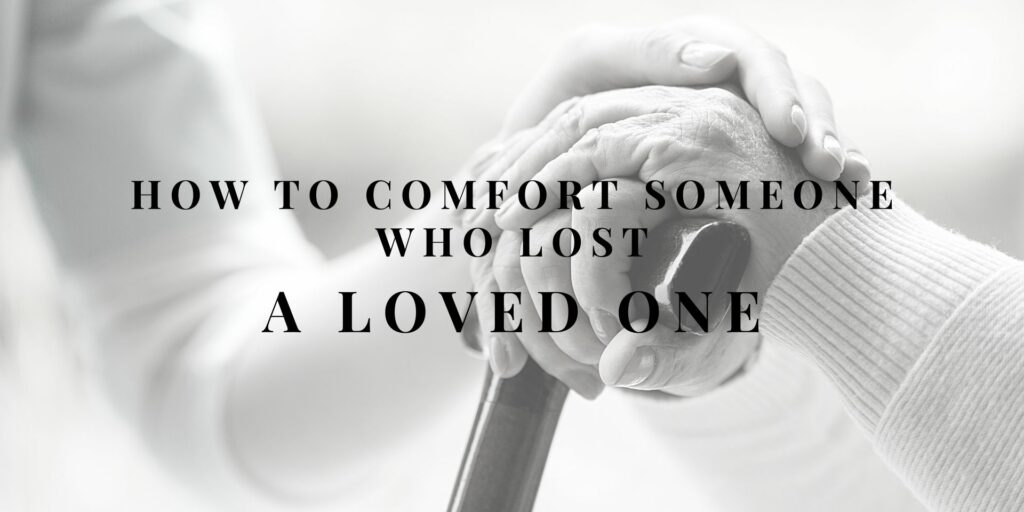
Quick do’s and don’ts for offering comfort when someone dies:
Do offer a distraction. Don’t offer advice.
Do listen. Don’t tell your own story of grief (unless asked).
Do bring flowers over (with a vase) or deliver something edible. Don’t get flowers delivered (honestly, for the newly grieving, it’s too much work to answer the door, find a vase, unwrap the blossoms, etc.)
Do use comforting clichés (see below). Don’t use false-comfort clichés (often they begin with “at least”).
Do check in frequently AND check in on their support team. Don’t disappear.
Do remember death anniversaries and the birthday of the person who died. Don’t be afraid to reach out on those trigger dates.
Do accept their grieving process whatever it may be without judgment. Don’t ignore warning signs like drug abuse.
Let’s dive into this a bit further. There is one piece of universal advice for what to say when someone dies.
The single best thing you can do when offering comfort? SHOW UP
Whatever you do, don’t talk yourself out of reaching out. Don’t search so long for the right words that you settle on no words at all.
Whether it’s a card, a text, a phone call, or an in-person visit, show up and use whatever words you have. Trust me on this, even the wrong words are better than disappearing.
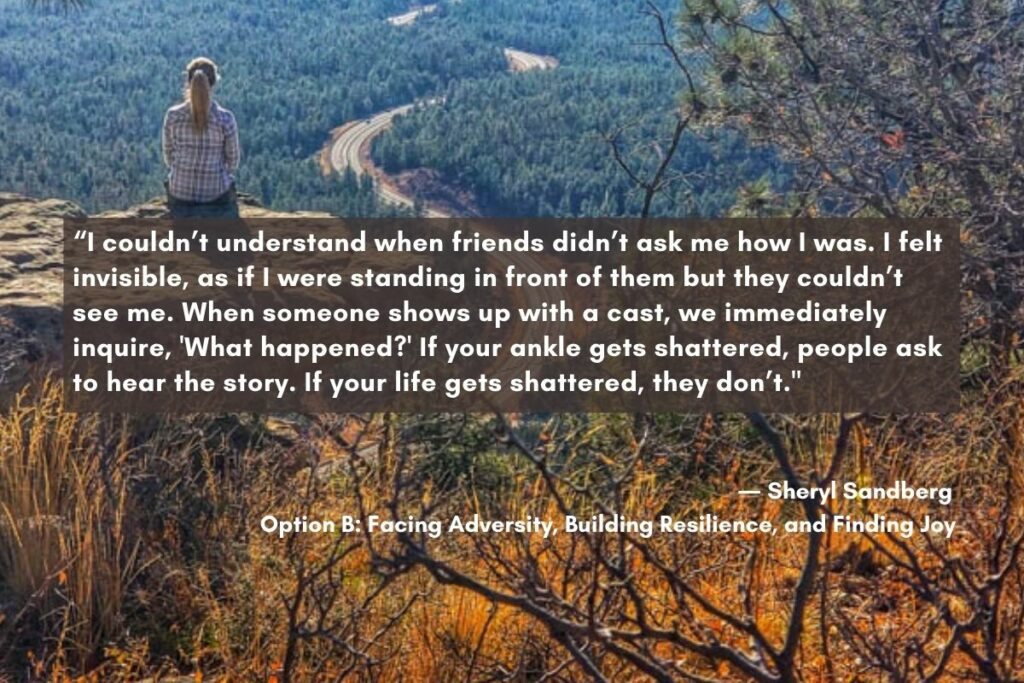

When my fiancé died of cancer, many people backpedaled right out of my life. I wholeheartedly understand and forgive the folks who needed to distance themselves from my pain for reasons of their own, but I urge you to fight the desire to take flight.
Send that text. Write that card. Don’t worry too much about saying the right thing. Since it’s true that there are no words that will heal the ache or fill the void for your loved one, say exactly that.
Related: Resources On Grieving
What to say when someone dies
It’s true that “there are no words” and “I’m sorry for your loss” are, indeed, clichés, but this is the time to use the overused phrase.
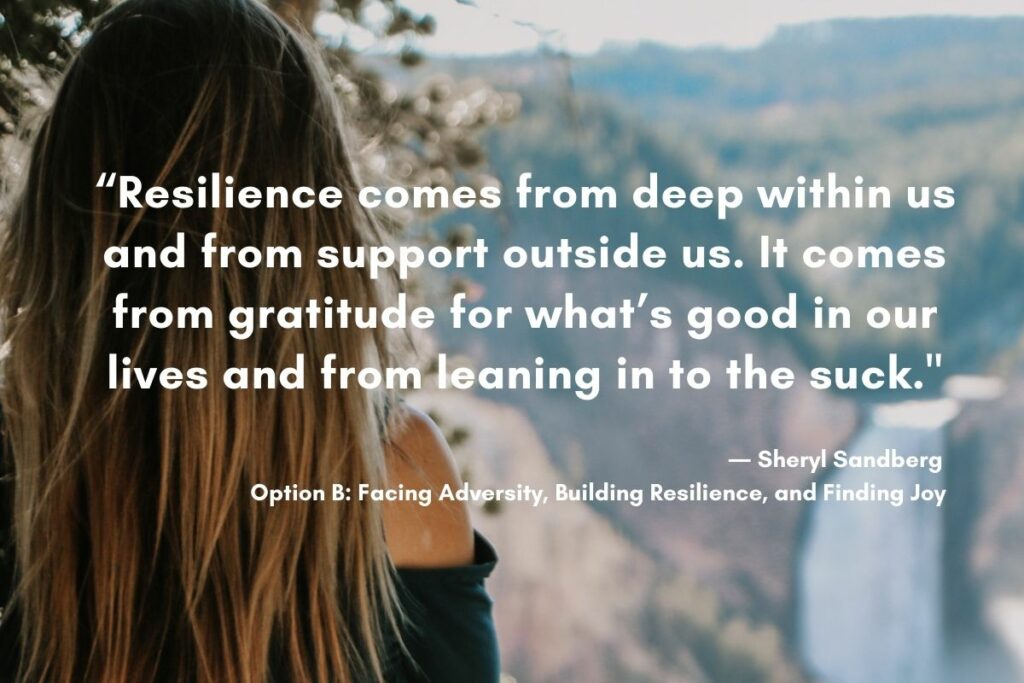
In fact, as a writer who rips clichés out of rough drafts like a dentist excavates cavities, I can assure you this is the time that even a writer won’t judge a mundane phrase.
Don’t overthink this part! Use the comforting cliché if those are the words that you find.
Here are some other ideas for what to say when someone dies:
I am here for you whenever and wherever you need me.
Saying that rather than “how can I help” goes a really long way to show that you are available without placing your own need to help on the shoulders of the griever. Grief renders us (both the griever and those who surround him) helpless; that’s part of the process.
Your grieving loved one does not want to think of ways for you to help him. He does want to know that you are always there.
My favorite memory of [insert name] is…
For me, this was the most comforting phrase that could be said. I loved hearing all of the stories of my partner that I didn’t get to learn before he died. Any conversation that started with “I remember when…” was a welcomed one.
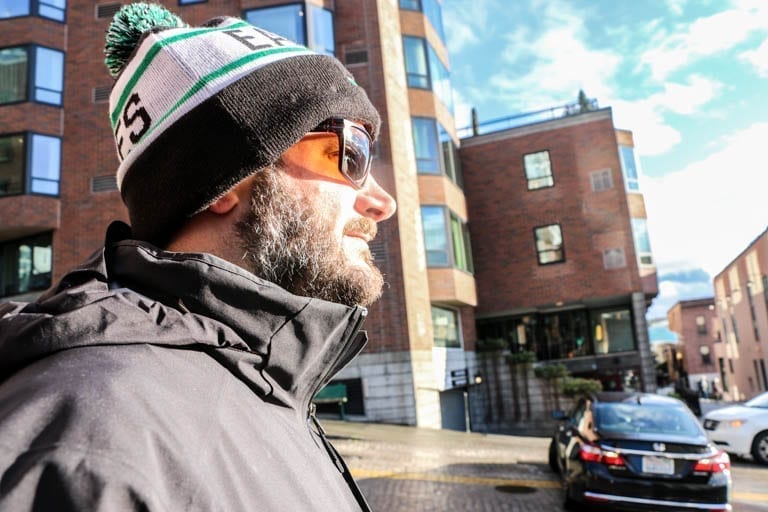
If you don’t know the deceased, it can be even hard to know what to say when someone dies. Try this: See if you can tell your grieving person a story of how you noticed a change in her – for the better – because her person came into her life even if just for a short time.
No matter what, in deciding what to say when someone dies, please use the name of the deceased. It is all she can think of, so avoiding his name just gets awkward and obvious.
Tell me about [insert name]
This is a go-to phrase if you didn’t know the person who died. It’s also one to use if you don’t know the person who is grieving.
Shortly after my partner’s death, I struck up a conversation on an airplane, and I dared to say the words that make people so uncomfortable. I told the guy in the middle seat that my partner died of cancer.
His response was perfect. He said: “That fucking sucks. Tell me about Jeff. He must have been amazing.”
Related: 10 Books to Change Your Life
It’s OK not to be OK
This is a good phrase to use when someone dies if your loved one is opening up about the grieving process. He may be trying to rationalize his behavior or remarking on how he can belly laugh one moment and ugly cry the next.
Reminding him that it’s OK not to be OK right now will help him accept his own and unique grieving process.
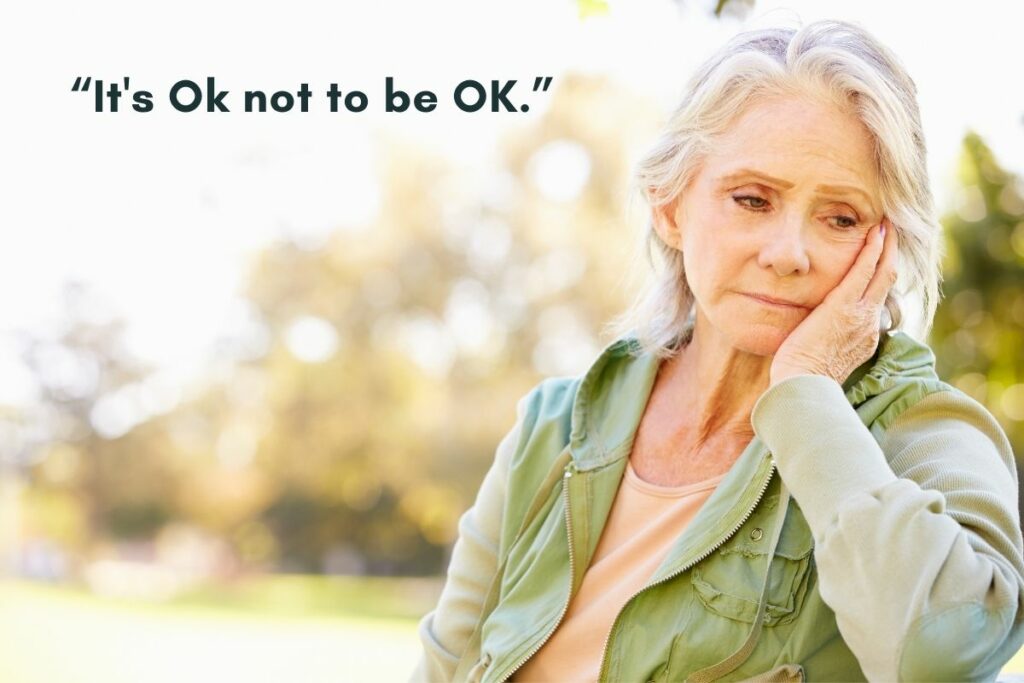
Saying nothing is an (in-person) option when figuring out what to say when someone dies
Now, for this technique, you need to be there in person. If you are able to comfort your loved one in the flesh, then a hug without words is everything.
When Jeff took his last breath he was surrounded by loved ones. As I write this, that circle of love around a hospital bed is not possible due to a pandemic, so I realize just how lucky he was, and how lucky I was to have hands to hold and arms to hold me.
But having all those people around also meant that I needed to seek a few moments of quiet now and again.
About 30 minutes after Jeff’s death, I slipped out of the crowded hospital and down to the park below his window to sit in the incongruous sun of a warm Chicago afternoon.

My best friend and my parents joined me. Because my mom couldn’t sit in silence just then, she walked by herself around the park. My best friend and father sat on the grass, flanking me.
They said absolutely nothing, and it was exactly what I needed.
Related: Scattering Ashes the Do’s & Don’ts for Handling a Loved One’s Remains
What (not) to say when someone dies
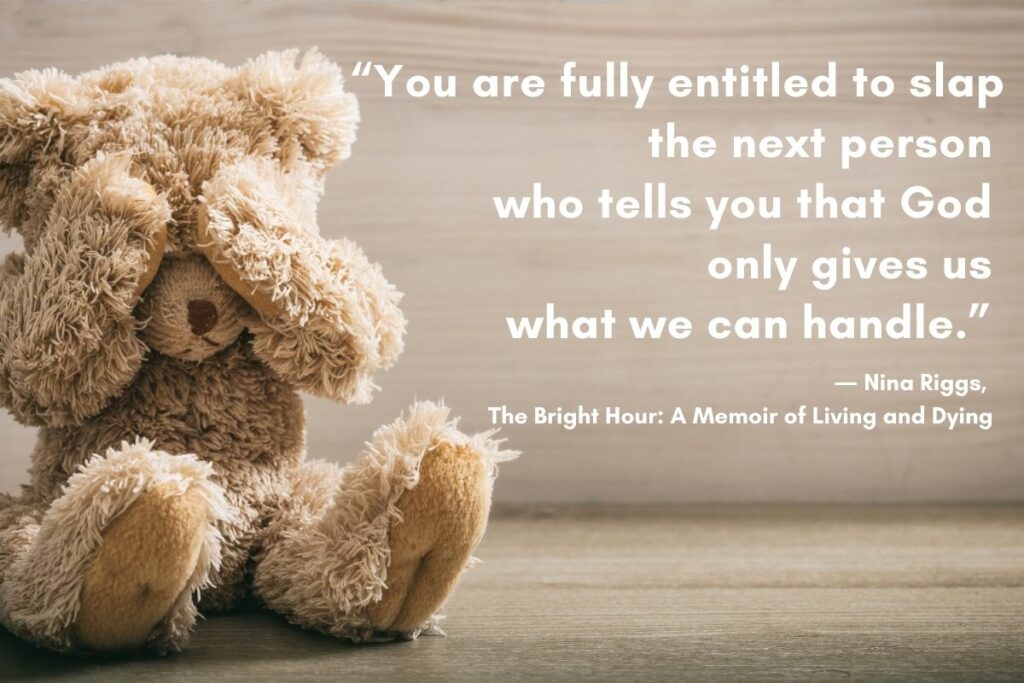
While I am urging you not to overthink your outreach to someone experiencing grief, there are some things that should not be said.
If you feel compelled to say any of the following phrases, please reconsider.
She is in a better place
There is a big difference between acknowledging the loss and rationalizing it. Your grieving loved one is not ready to consider a better place for his partner other than the place right next to him.
There is a reason for everything
If your grieving friend is going to come to this conclusion, let her do it on her own. It will be through a long grieving process that she gets here, and she may never conclude that the death of her loved one happened for some grand plan.
This falls into the category of a false-comfort cliché that offers more comfort to you than to the grieving person.
Other false-comfort phrases to avoid include: “It’s all for the best” “It was all God’s plan,” and “She performed her duties here”. Or anything beginning with:
At least…
Pretty much scrap whatever you are going to say/write if it begins with “at least.” This is not the time to compare your experience with grief or with death.
Even “at least he is no longer in pain,” is an unnecessary reminder of that pain. (Though your grieving person may want to say this phrase, and you should absolutely agree.)
To take that a step further, your grieving person doesn’t need to be reminded of the relief that she feels because her person is no longer in pain. It’s a horrible part of the grieving process that she is in the process of reconciling.
Just avoid “at least”.
Let me know if you need anything
Rather than putting the burden of outreach on your grieving loved one, try to offer specific help. Bring over dinner or a bottle of wine, or simply check in every other day via text or a phone call.
Sometimes you don’t need to worry about what to say when someone dies because all your loved one needs is to reminisce. Your job is just to listen. And, if your loved one doesn’t want to talk, then your job is to simply be there or be available just in case.
Show that you are available to talk whenever she wants and you will be someone that she calls on when she’s ready.
Did he smoke?
My partner was 40 years old and healthy; he died of a cancer that tends to ensnare smokers.
It got to a point where I had would say, “he died of esophageal cancer, and, no, he didn’t smoke.”
Hold back on your morbid curiosity when comforting a person experiencing grief. He will offer details when and if it helps him to speak those details out loud.
You will find love again
I could write a whole blog post about this one. For now, I’ll just say too soon, man. Too soon.
Remember: our grief is unique to us
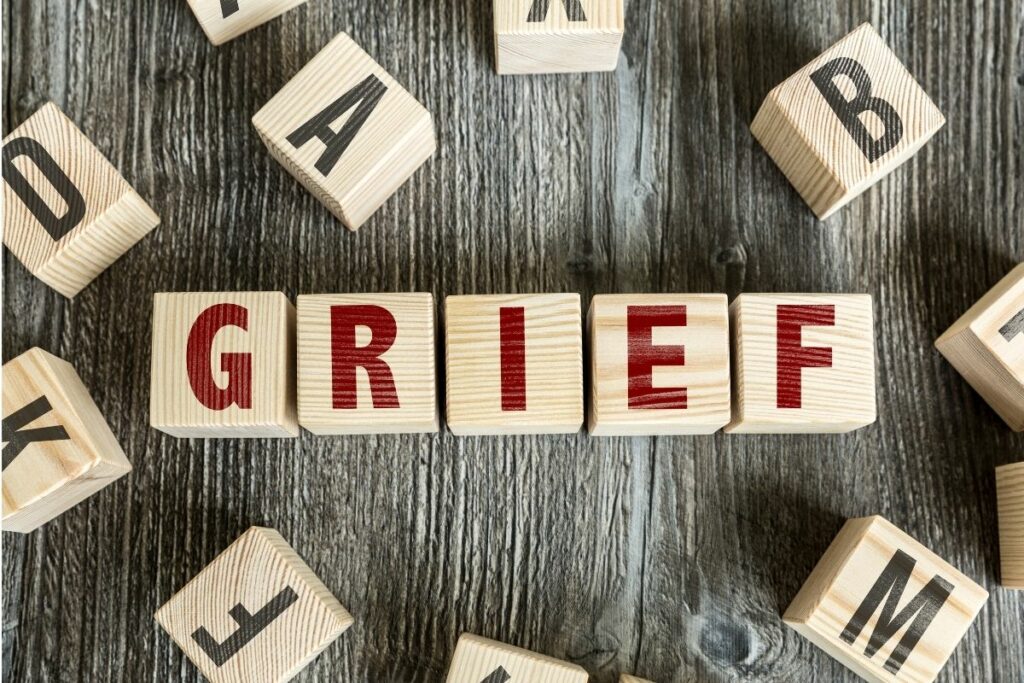
The experience of grief is unique to the person and to her circumstance.
Case in point, author and comedian Laurie Kilmartin was the first person to make me consider death clichés in her hilariously irreverent book Dead People Suck: A Guide for Survivors of the Newly Departed.
While Kilmartin agrees that those clichés are good to share with the grieving, she also insists that she did not lose her father. No, she contends, he is not lost. He is dead.
When I read Kilmartin’s words two months after Jeff died of cancer, I was startled by the sound of my own laughter.
I really needed that laugh in those haunted days when the celebrations of life faded into the reality of a lost life.
BUT the word “death” still made me sort of wince. It took me a few more months before I could use the word death or dead without cloaking the black words in safe and flowery euphemisms.
That book wouldn’t be for everyone. There is just no one gift, word, turn of phrase that works for every person experiencing unique grief.
But that book did help me. So, with the caveat that it may not help every grieving person, here are seven books that helped me through my own grief.
Please remember that your loved one’s grief is unique to her and to her circumstances. But that’s where you come in. You are part of her world, her support network, and her circumstances.
Whatever you choose to do or say when someone dies, please show up.
Empathy cards with what to say when someone dies
I really love these empathy cards by Emily McDowell & Friends. There are a ton of great options on her website that are sure to make your loved one smile through the tears.
About the Author
Hi! I’m Jen!
I’m a freelance writer and travel blogger who quit my nine-to-five after my fiancé, Jeff, died of cancer at the age of 40. When he died, I realized that life is just too short to delay our dreams. Since my dream was to travel and write, I now travel and write full-time. Today I wear hiking boots instead of heels and collect experiences instead of things.
Related posts
Resources for the grieving beyond what to say when someone dies:
Resources for Grieving
01
Grief Works: An app to guide you through your grief
02
Hot Young Widows Club: Stories of love & loss on Instagram; also a book
03
Modern Loss: Essays & resources to navigate life after death
04
Good Mourning Podcast: Authentic conversations about loss
05
Soaring Spirits: Peer-based support programs for widowed men & women
06
Subscribe to my newsletter for tips on grief & post-traumatic growth
My resources pages on grieving and on finding love after loss may help as well.

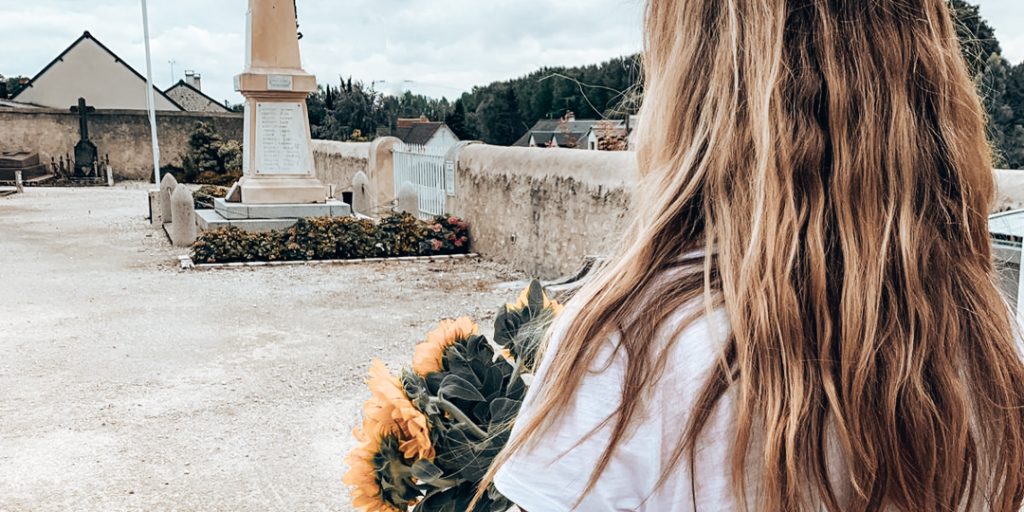




Well today was my first birthday without my husband. I didn’t answer phone calls respond to Happy Birthday texts or open cards. I just didn’t know what to say because I’m not happy. Do I politely say Thanks or tell my friends how hard this day is/was. Jen what did you do?
Marissa,
The year of firsts is so hard. My heart is with you.
There is no right or wrong thing to do. If it feels right to you to avoid contact, then that’s OK. Most of your friends and family will understand. (The ones who don’t understand are the lucky ones who haven’t experienced loss. They can’t understand you and you can’t understand them right now. And that’s OK, too. I think of it as two people who speak different languages communicating. Lots of smiling, nodding, assuming the best of intentions, and letting miscommunications go.)
As for what I did on my first birthday without Jeff? I needed to be around people, so I surrounded myself.
It was the first Valentine’s Day when I kept to myself, avoided friends and family, ignored the pink and red world of hearts around me, and, much like you are doing, sought out people who could understand.
I’m so sorry for your loss. I’m here to listen if you need it.
With love,
Jen
Thank you for this post. Profound grieving happens when a life is shattered beyond understanding as well. When a narcissist such as Harri Mutka pushes you off a cliff, leaves you to die slowly and even tells you to go kill yourself.
These things happen in life and can be worse than the final moment of death.
I agree with you entirely that grieving happens in those shattered moments, whether a breakup or an assault or a death (or any grieving season that seems like it may break us). When you feel like you’ve lost all control or power over your own life, and you have to start over…that’s grief. That’s trauma. And it touches us all. It’s what we do with the transformative experience when we pick up the pieces that define us. Our evolution is rooted in this experience both individually and across the generations.
Sending you love.
First, I am so sorry for what you have lost and been through! And second, thank you for this helpful post. I feel like it’s vulnerable to write this, and so helpful so that people know how to help. The feeling to want to help can be so strong, and yet the words don’t come. This post really helps find the right way to support someone grieving.
Megan, thank you so much for your kind words. And thank you for reading.
Jen: your words here are astute and resonant.
I knew the estimable Jeff Elko from our high school days in Lansdale and beyond. He was as sweet and friendly and witty a bastard as any man I will ever know.
I often think of him polling our table in art class with facetious questions delivered in a sincere, job interview-like style: “Now, would you rather be able to turn invisible, or have the power to run really fast?”
Or ad-libbing at length a chapter he clearly did not read from Moby Dick and being told by our teacher “Now Mr. Elko…let’s not rewrite the novel.”
And singing along with the lyrics of the song “Laid” by the band James: “Ah, you think you’re so pretty, EEEEE-eeeeeeee EEEEEE-eeeeeeee” in a brutal falsetto.
Anyway I am sure you know why those moments and countless others are so prized and memorable to me.
All the best from a friend of Jeff.
Jeff, Thank you so very much for this thoughtful comment. It honestly made my day when I read it. As you must have read in this post, I love to hear memories of Jeff and these are perfect reminders of who he was. (And I seriously don’t envy any English Lit teacher who had Mr. Elko in his class!) Thank you, again. – Jen